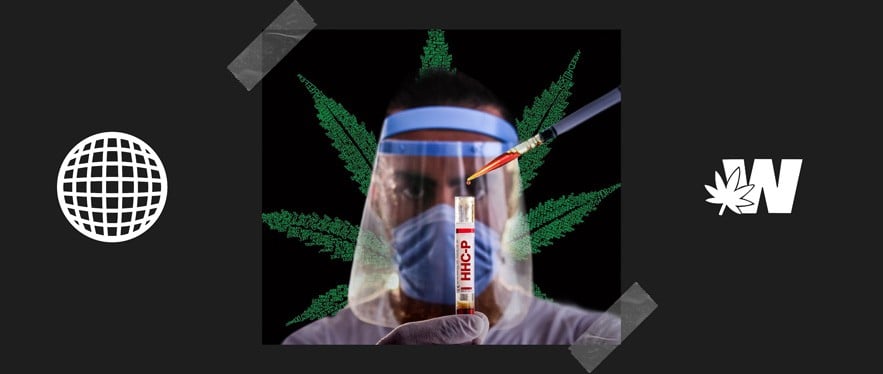
Does HHC and Delta-10 THC Show Up on a Drug Test
In recent years, the cannabinoid market has witnessed the emergence of novel compounds such as HHC and Delta-10 THC , offering consumers alternative experiences to traditional cannabinoids like Delta-9 THC. However, alongside their growing popularity, questions arise regarding their detectability in drug tests and the potential ramifications for individuals subject to such screenings. Understanding the implications of HHC and Delta-10 THC on drug tests is crucial for individuals navigating employment, legal situations, and personal choices. This article aims to explore the detectability of HHC and Delta-10 THC in drug tests, providing insights to empower informed decisions among users and potential users of these substances.
This post is intended as information and for general knowledge only. It is not a substitute for medical advice, diagnosis, or treatment. It is recommended that you talk to a healthcare professional about this before introducing cannabinoids into your daily routine (especially if you have been diagnosed with any medical conditions or are under any medication). It is not recommended to drive or operate any machinery when using cannabis- or hemp-derived products. Use responsibly!
Understanding HHC and Delta-10 THC
HHC, also known as Hexahydrocannabinol, is a cannabinoid compound with a unique chemical structure distinct from other cannabinoids found in the cannabis plant. On the other hand, Delta-10 THC, a lesser-known variant of THC, possesses a molecular structure that differs from the more common Delta-9 THC. Despite their structural disparities, both HHC and Delta-10 THC have gained attention for their potential medical applications and consumer experiences, setting them apart in the cannabinoid landscape.
Drug Testing Methods
Various drug testing methods, including urine, blood, saliva, and hair tests, are commonly employed to detect the presence of illicit substances or their metabolites in the body. These tests utilize different mechanisms to detect cannabinoids, including THC and its analogs, with varying degrees of sensitivity and specificity. Understanding how drug tests detect cannabinoids is essential for comprehending the detectability of HHC and Delta-10 THC in these screenings, including factors that may influence test accuracy.

Metabolism and Detection Windows
Upon consumption, HHC and Delta-10 THC undergo metabolism in the body, leading to the formation of metabolites that can be detected in drug tests. The detection windows for these cannabinoids vary across different testing methods, influenced by factors such as frequency of use, metabolism rate, and body composition. Delving into the metabolism and detection windows of HHC and Delta-10 THC provides insights into the duration these substances remain detectable in various drug tests.
Cross-Reactivity with Standard THC Tests
One crucial aspect of assessing the detectability of HHC and Delta-10 THC in drug tests is their potential cross-reactivity with standard THC tests designed to detect Delta-9 THC. Understanding the likelihood of HHC and Delta-10 THC triggering false positives in these tests is essential for individuals subject to drug screenings, highlighting the importance of accurate test results and potential risks associated with false interpretations.
Legality and Labeling Issues
Navigating the legal landscape surrounding HHC and Delta-10 THC is imperative for individuals using or considering the use of products containing these cannabinoids. Recent changes in legislation have implications for the legality of these substances, influencing their availability and labeling accuracy in the market. Addressing labeling issues and potential misidentification of products containing HHC and Delta-10 THC underscores the importance of transparency and regulatory compliance in the cannabinoid industry.
Risk Mitigation and Legal Implications
Mitigating the risk of testing positive for HHC and Delta-10 THC is crucial for individuals seeking to avoid adverse consequences in employment or legal settings. Implementing strategies to minimize exposure to these cannabinoids and understanding legal protections or lack thereof for users is essential for informed decision-making. Additionally, comprehending employer policies and potential repercussions for positive drug test results provides individuals with insights into navigating workplace regulations and safeguarding their interests.
Conclusion
In conclusion, the detectability of HHC and Delta-10 THC in drug tests encompasses various factors, including their metabolism, detection windows, cross-reactivity with standard THC tests, legality, labeling accuracy, and risk mitigation strategies. Empowering individuals with knowledge about these aspects enables them to make informed decisions regarding the use of products containing these cannabinoids and navigate potential drug testing implications effectively. As the cannabinoid landscape continues to evolve, staying informed about advancements in research and testing methodologies is essential for users and stakeholders alike.
















